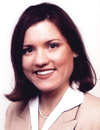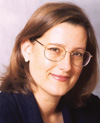The magnetism of money-market funds
Treasurers’ use of money-market funds has grown in the US and, more recently but to a lesser extent, in Europe. William Essex looks at the latest innovations that are attracting treasurers to these products.
Rather than leaving money to languish overnight on deposit, banks tout services that maximise corporates’ return. However, it is not just the banks that are active in this market, fund managers have also got in on the act. And money-market funds are becoming increasingly popular.
The UK’s Association of Corporate Treasurers (ACT), which regards the funds as flexible, straightforward and popular, now includes their use in its courses for aspirant treasurers. ACT technical officer Martin O’Donovan says: “By and large they’re very highly rated and the rates of return you can get from them are very reasonable compared with the alternatives.”
Money-market funds were introduced in the mid-1970s and since then, the market has grown to more than $2000bn in the US. In Europe, growth has been much slower. This can be attributed to a variety of factors, including a lack of one single regulatory and economic agency, and the paucity of available funds. Since the introduction of the euro, however, the market is gathering pace.
“It is more difficult over here with money-laundering issues and all the different currencies. With the advent of the euro, things became a lot more streamlined,” says Jill Iacono, senior marketing manager for cash management at State Street Global Advisors. “In 1999, a lot more funds opened. In the past three years, the assets in international money-market funds have grown more than 295%; they went from $40bn to more than $200bn now.”
According to Ms Iacono, they are also secure. “Money-market funds really mitigate all risks and it’s very cheap to use them. Any treasurer who does not realise the benefits by now had better start finding out about them,” she says.
Risk mitigation
Do they mitigate all risks? Ms Iacono’s point is that the deposit-oriented approach to cash management, whereby the treasurer devotes resources to rolling over both overnight and term deposits, leads to a concentration of risk with one counterparty.
This point is frequently made in favour of money-market funds. For example, Henry Buckmaster, head of UK institutional business development (direct channel) at Investec, says: “It has got to be a good alternative – leaving Ł10m in a triple A-rated money-market fund that has hundreds of millions of assets in it and between 15 and 25 different high-quality credits as its assets – as against leaving Ł10m on the balance sheet of a bank.”
Challenged about the scale of the risk represented by the balance sheet of, say, a UK high-street bank, Mr Buckmaster says that the key difference is diversification. “Diversity is by nature security-enhancing,” he says.
Attractive pricing
The funds are cheap, too. Expense ratios for money-market funds stand at about 20 basis points (bp) for the European market and 15bp for sterling. “That’s a really cheap price to pay for not having to deal with the credit issues, default risk, market risk and transactional costs incurred on rolling balances over every night,” says Ms Iacono. “Pension funds and corporate treasurers who leave balances on their custody bank’s deposit are seeing yields that could be 100bp or 200bp lower than what they could be achieving.”
This is not outperformance: the return differential described here relates to the operational cost of managing overnight deposits, and thus indirectly raises the topical issue of outsourcing.
Cash managers and money-market fund-managers are in the same business (setting aside such details as rating constraints). According to Sean Byrne, relationship manager, institutional liquidity funds, at JP Morgan Fleming Asset Management, the money-market securities in which most corporates invest are in many cases the same securities in which money-market funds invest. “One of many advantages of a money-market fund to a treasurer is that once you have made an investment, it rolls over. The client does not have to worry about specifying a duration as this is the portfolio manager’s duty in accordance with the imposed rating agencies’ guidelines,” he says.
Jill Iacono: ‘In no other sector of the capital markets does size matter more’
Les James: ‘Money-market funds probably slightly underperform daily rates’
Cynthia Sweeney-Barnes: ‘Money-market funds are a complement to deposits’
The convenience factor
As this suggests, the current trend is to promote money-market funds on the basis of convenience. Lisa Rossi, head of US liquidity management at Deutsche Bank Global Cash Management, speaks of “offering options to treasurers, along with operational efficiencies that say to the treasurer: you can relax because you are fully invested”.
The idea is that treasurers, once they are freed from the day-to-day grind of transacting and managing risk, can focus their resources more constructively. This is persuasive, not least because improvements in cash flow forecasting have increased the predictability and thus “outsource-ability” of the treasurer’s job. The time freed up can be valuable, says Jonathan Curry, head of European cash management at Barclays Global Investors. He describes his role as “enabling treasurers to focus on value-added functions”.
There is a possible snag here, however: fiduciary duty cannot be outsourced. The management of cash may be delegated outside the institution but the treasurer still carries the obligation not only to maintain an ongoing oversight process, but also to demonstrate to various interested parties that oversight is both effective and continuous.
A triple-A rated money-market fund with a weighted average maturity of 60 days is at least as secure as any single security that could be quoted to complete the maxim: “You never get fired for investing in … ”. And a diversified investment in bank (and other) instruments is likely to be at least as secure as any single bank deposit. But what clinches the deal in the case of money-market funds is the availability of an overseeing role for treasurers. Some fund providers have found that giving treasurers a window into the (fund) management of their money can add promotional value.
“Treasurers may want to look at the duration and the choice of investments, including treasuries, commercial paper and time deposits. Sometimes, they are even interested in the history of the portfolio manager,” says Ms Rossi.
Happy treasurers
Keeping the treasurer happy is a side-benefit of another current trend in money-market fund cash management: transparency through technology. Recent initiatives have targeted a streamlined approach whereby treasurers have a portal on their desk that gives them all the alternatives to investing every day. “All you have to do is plug in your trades,” says Ms Iacono. A further application of technology is to go beyond the presentation of the alternatives into automating the selection.
Describing the evolution of “overnight diversification” at Deutsche Bank, Ms Rossi outlines a “multi-option investment sweep [to] segment investment into various sweep options rather than [the] traditional single overnight investment sweep”. The process is automated, new sweep options are being added, and the aim is that treasurers know where the money is going but do not have to do anything to get it there.
Balance in the debate
Performance is another factor to take into account. That is where the debate between deposits and funds becomes more evenly balanced. Les James, head of treasury at Butterfield Private Bank, says: “Rates on money-market funds probably slightly underperform daily rates on the money markets, but only by a few basis points.” If it is only overnight, it is hardly worth going into a money fund, he says. “The one [salient] thing about a fixed deposit is that the client knows the rate of return from the outset.”
However, it is unlikely that a cash manager who regularly deals with significant amounts of money will be limited to a single relationship with a bank and/or fund; just as it is unlikely that many cash managers will regard the deposit-versus-fund debate as an either-or issue. And there is a useful tactical point: look at the yield curve.
David Fitch, senior marketing manager at Investec Bank, says: “We would not suggest that a corporate placed all its money in a money-market fund because there are still some benefits in fixed deposits. Apart from the certainty of return, you do get the opportunity to lock into the yield curve. Money-market funds have a slight edge with an inverted yield curve, but fixed deposits have the edge with an ordinary yield curve.”
Complementary tools
Cynthia Sweeney-Barnes, director of HSBC Asset Management, agrees. “Money-market funds are a complement to, rather than a replacement for, deposits. There is a role for both in corporate treasury.”
So the best advice to a treasurer is: use both.
And next-best advice might be: think big. “In no other sector of the capital markets does size matter more,” says Ms Iacono. “When you’re buying short-dated securities, you’re buying on a spread. The larger the chunk you can buy from an issuer, the better the deal they’re going to give you.”
How big is big? Ian Coulson, managing director and vice-president of Butterfield Asset Management, says: “For a money-market fund to be effective in the marketplace, to dictate its own terms to a certain degree with issuers, it would need in excess of probably $500m. The rule is: the larger, the better.”





